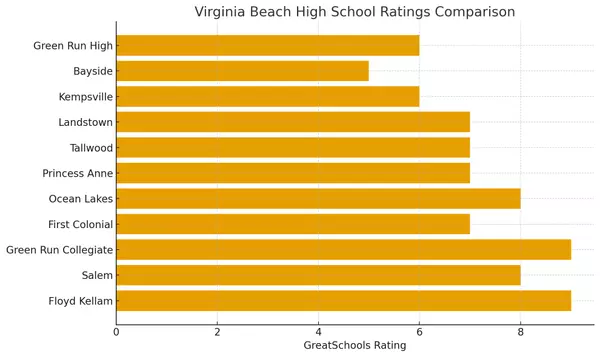How Are Mortgage Rates Determined?

When you check with a lender, you’ll see advertised mortgage rates. But will you qualify for those rates? It all comes down to risk—the higher the risk for the lender, the higher the interest rate you’ll pay.
Lenders base your mortgage interest rate on several factors—some you can control, and others you can’t. Understanding why rates vary and how even a small increase can add up over the life of your loan is important. The good news is that mortgage rates can be negotiable, so it’s worth comparing rates from different lenders to find the best deal.
What Factors Determine Interest Rates?
Credit Score:
Your credit score is one of the biggest factors in determining your rate. Generally, the higher your score, the better rate you’ll get. Lenders use FICO scores, which range from 300 to 850. A score above 720 is often the cutoff for getting better rates without adjustments, but you may get even better rates with higher scores.
Loan-to-Value Ratio and Down Payment:
Lenders also look at the loan-to-value (LTV) ratio, which compares the size of your loan to the value of the home. A larger down payment lowers your LTV, making you less risky to the lender and possibly earning you a lower interest rate. If your LTV is higher, you might have to pay for private mortgage insurance (PMI).
Loan Purpose and Type:
Whether you’re buying a home, refinancing, or doing a cash-out refinance can affect your rate. Typically, cash-out refinances come with higher rates. The loan type—fixed-rate or adjustable-rate—also impacts your rate, with adjustable-rate mortgages (ARMs) often starting with lower rates than fixed-rate loans.
Loan Term:
Shorter-term loans, like 15-year mortgages, tend to have lower interest rates than 30-year loans. However, your monthly payments will be higher with shorter terms.
Loan Amount:
Smaller loans can sometimes have slightly higher rates, while loans closer to the upper limits of conforming loan amounts may have slightly lower rates. Jumbo loans, which exceed conforming limits, generally come with higher rates.
Location:
Your home’s location can also affect your rate. Lenders may charge higher rates in areas with a higher risk of default or where foreclosure laws make it harder to recoup their losses.
How to Lower Your Mortgage Rate
Improve Your Credit Score:
Raising your credit score can make a big difference in the rate you qualify for. Start by checking your FICO score and review your credit reports for any errors that could be bringing your score down.
Increase Your Down Payment:
A larger down payment reduces the lender’s risk, which could help you qualify for a better rate. Talk to your lender about how your down payment and credit score affect your rate.
Pay Points on the Loan:
You can lower your interest rate by paying mortgage points, which are fees paid upfront to the lender. One point equals 1% of your loan amount, and paying points lets you reduce your interest rate in exchange for a fee. This can be a good option if you plan to stay in the home for a long time.
Understanding how mortgage rates are determined and what steps you can take to lower them can help you save money over the life of your loan.
Categories
- All Blogs (51)
- Buyer Stories (1)
- Buyer tips (7)
- Buyers (3)
- Buying (2)
- Buying Advice (3)
- Buying Assistance (3)
- Credit & Debt (2)
- Down Payment (1)
- Financing (8)
- Financing Options (1)
- First Time Home Buyer (20)
- Foreclosures (1)
- Interest Rates (2)
- Loans (4)
- Military (6)
- Mortgage Interest Rates (1)
- Mortgage Rates (1)
- New Construction (1)
- Personal Finance (2)
- Refinance (1)
- Schools (11)
- Tax tips (1)
- Title & Closing (1)
- VA Loans (1)
Recent Posts











